Abstract
A mail survey was conducted of consultants and senior registrars practising accident and emergency (A&E) medicine in the United Kingdom. The 201 respondents (72%) comprised 154 consultants (70.6%) and 47 senior registrars (77%), who provided demographic information and completed inventories measuring stress, depression, task and role clarity, work group functioning and overall satisfaction with work. The respondents did not report particularly high levels of stress or depression and generally evaluated aspects of their work environments favourably. Higher levels of stress were reported by consultants and respondents from district general hospitals. Levels of stress were similar to those reported by other groups of health care providers. Respondents generally considered tasks and roles to be clearly defined, work groups to be supportive, efficient units and work satisfying. There was no statistically significant correlation on the affective scales for the number of patient attendances, on call commitment or staffing numbers. Senior staff with more than 10 years experience in the specialty reported more satisfaction with work and work group functioning, and perceived their tasks and roles to be significantly clearer. Consultants over 45 evaluated their work groups favourably and were more likely to view them as cohesive, smoothly functioning units than senior registrars. The results probably reflect the ad hoc coping strategies adopted by a group of doctors, who have already demonstrated appropriate personality characteristics by completing a long training programme, with no realistic alternative late career opportunities. To prevent mid or late career attrition, however, A&E doctors should receive formal training in stress recognition and avoidance. Accessible counselling without stigma should be easily available. Senior A&E doctors have a role in detecting and managing stress amongst other staff in the department.
Full text
PDF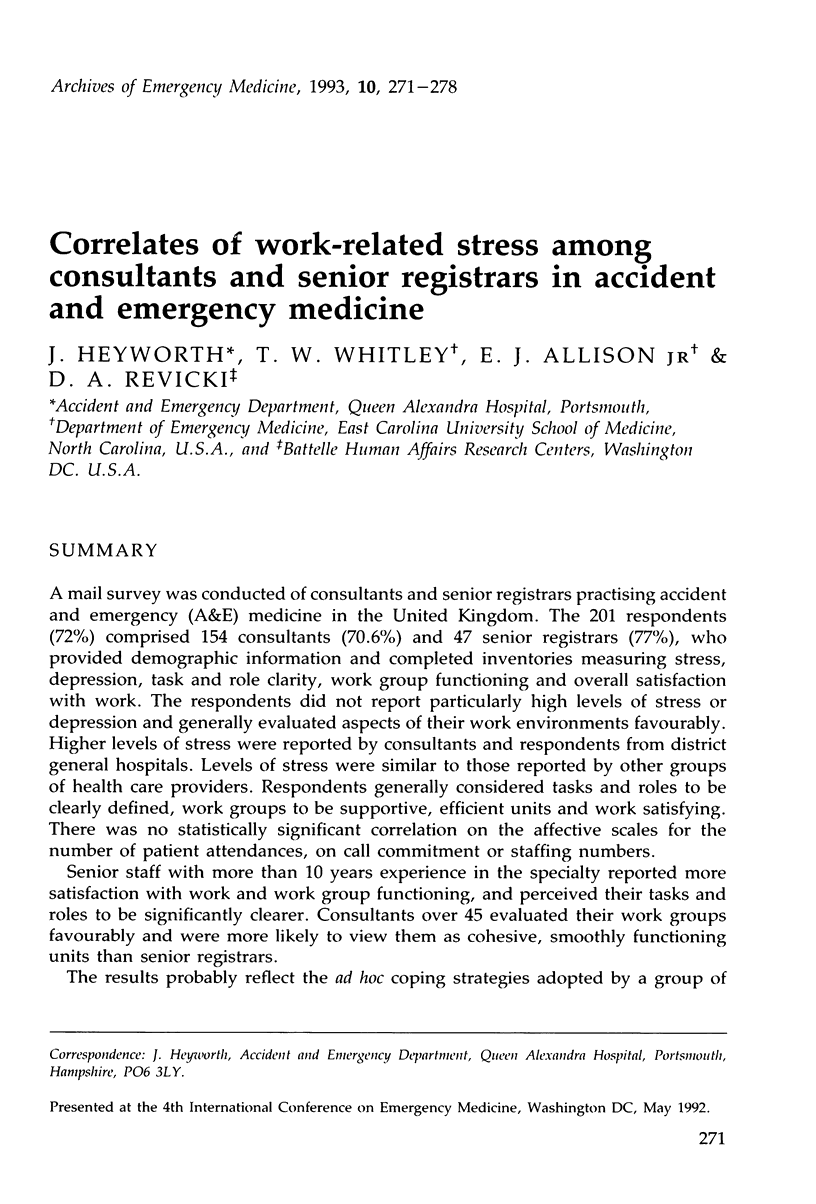
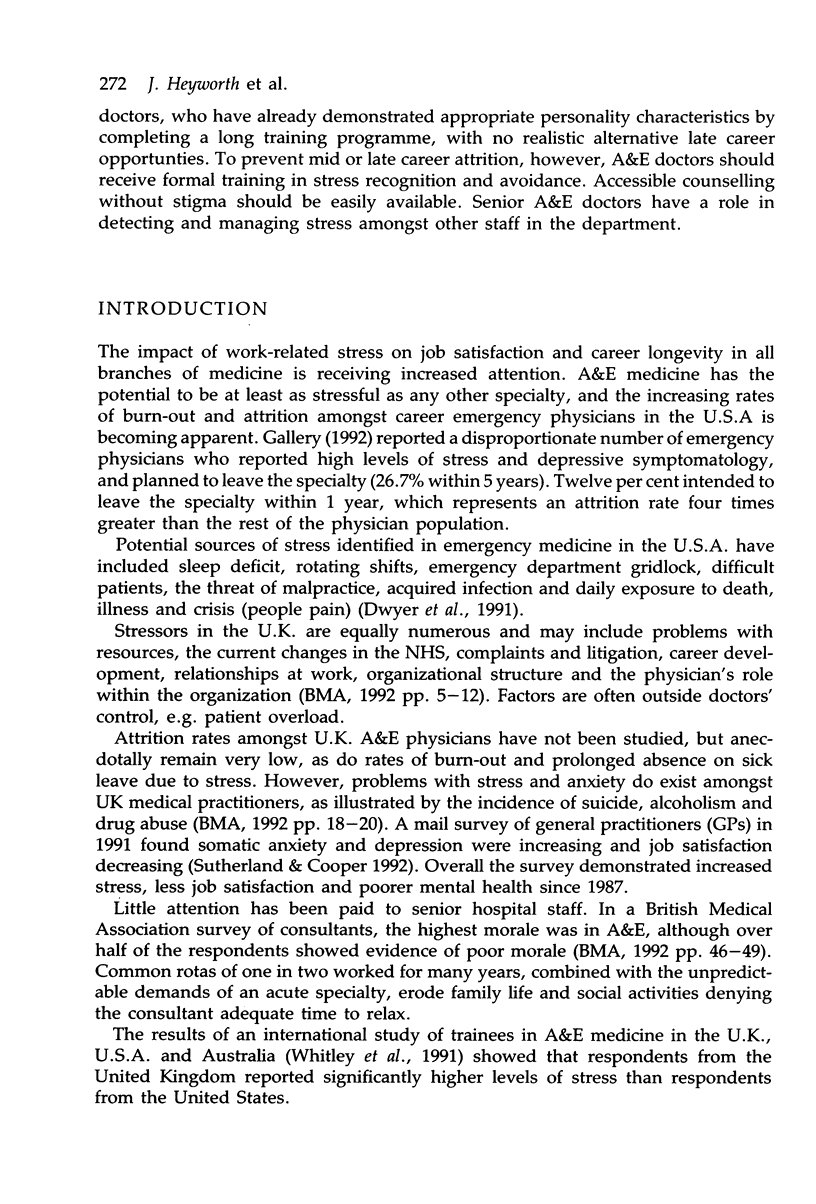
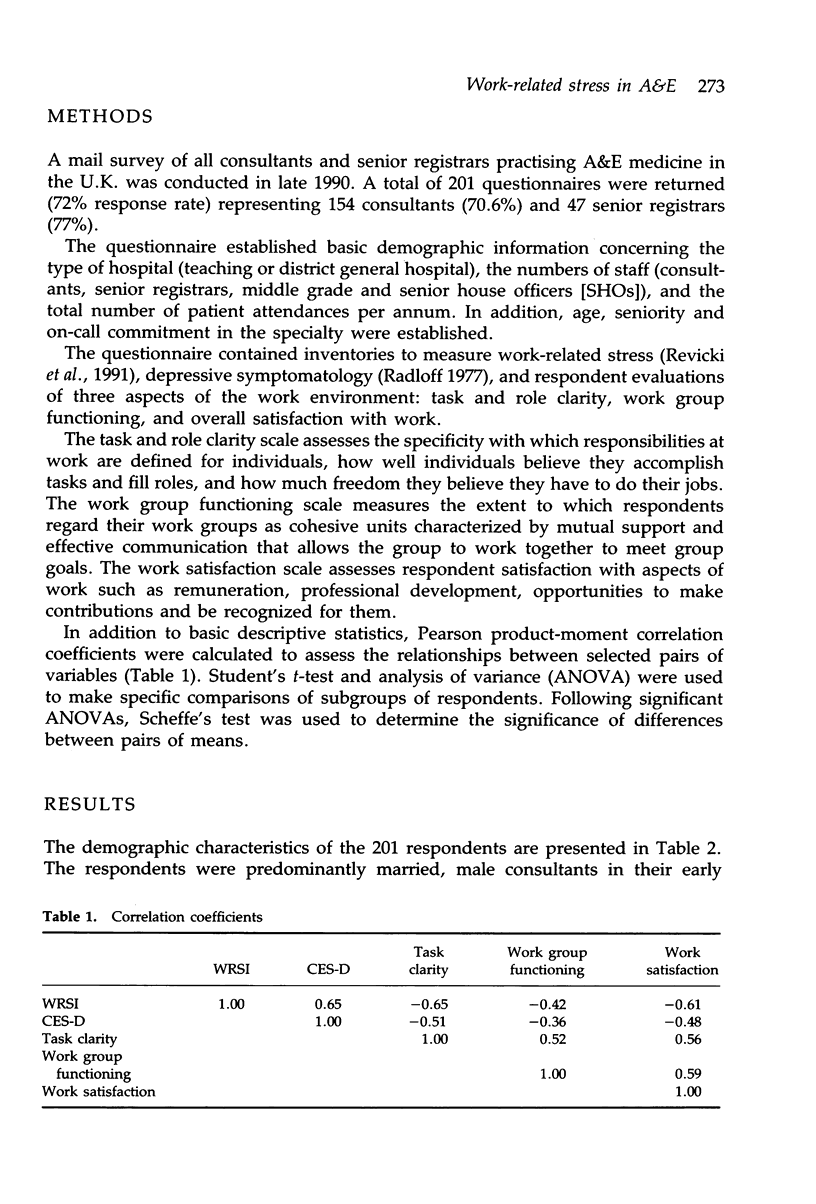
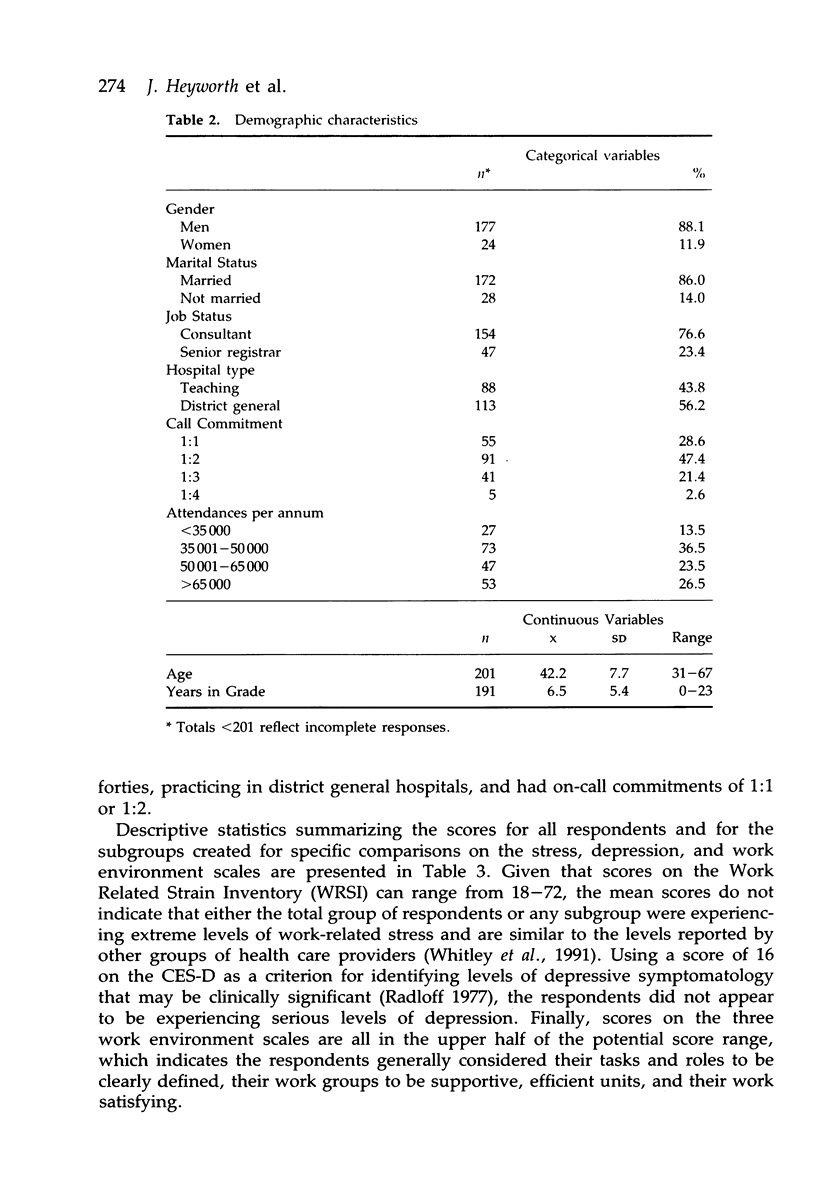
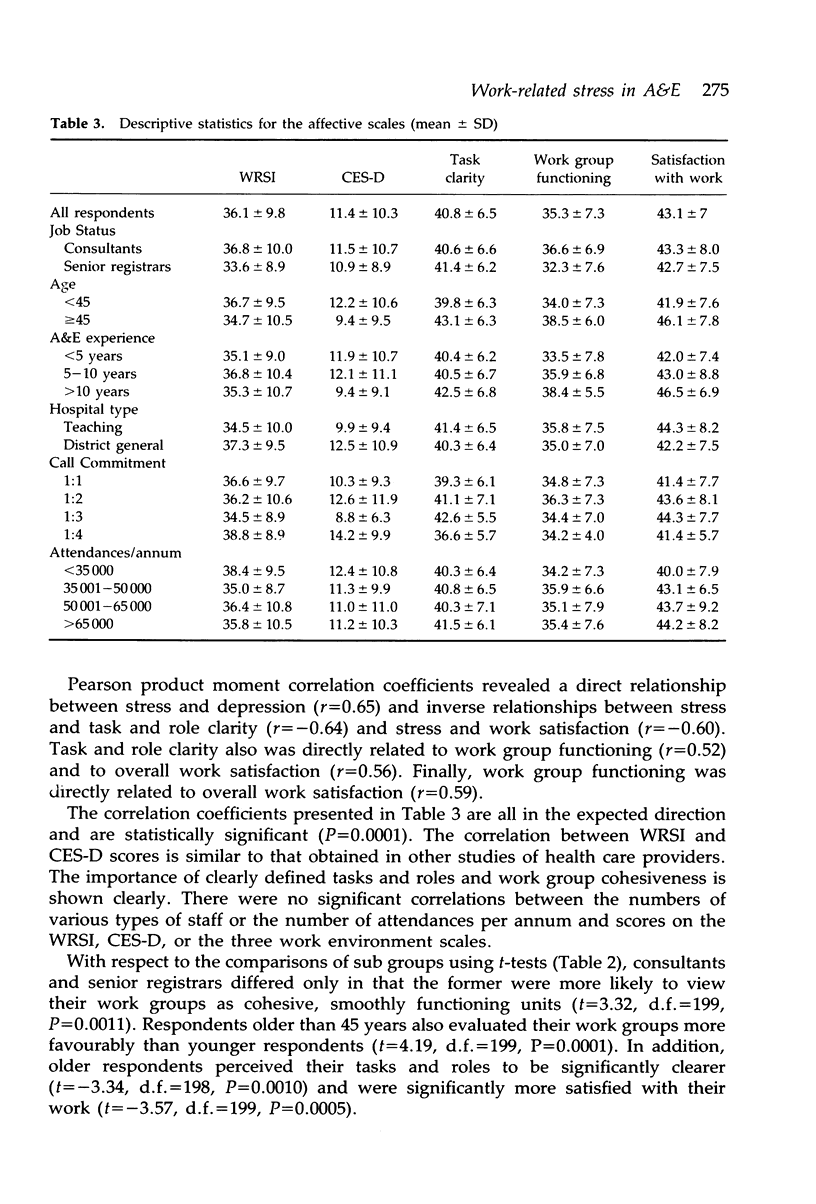
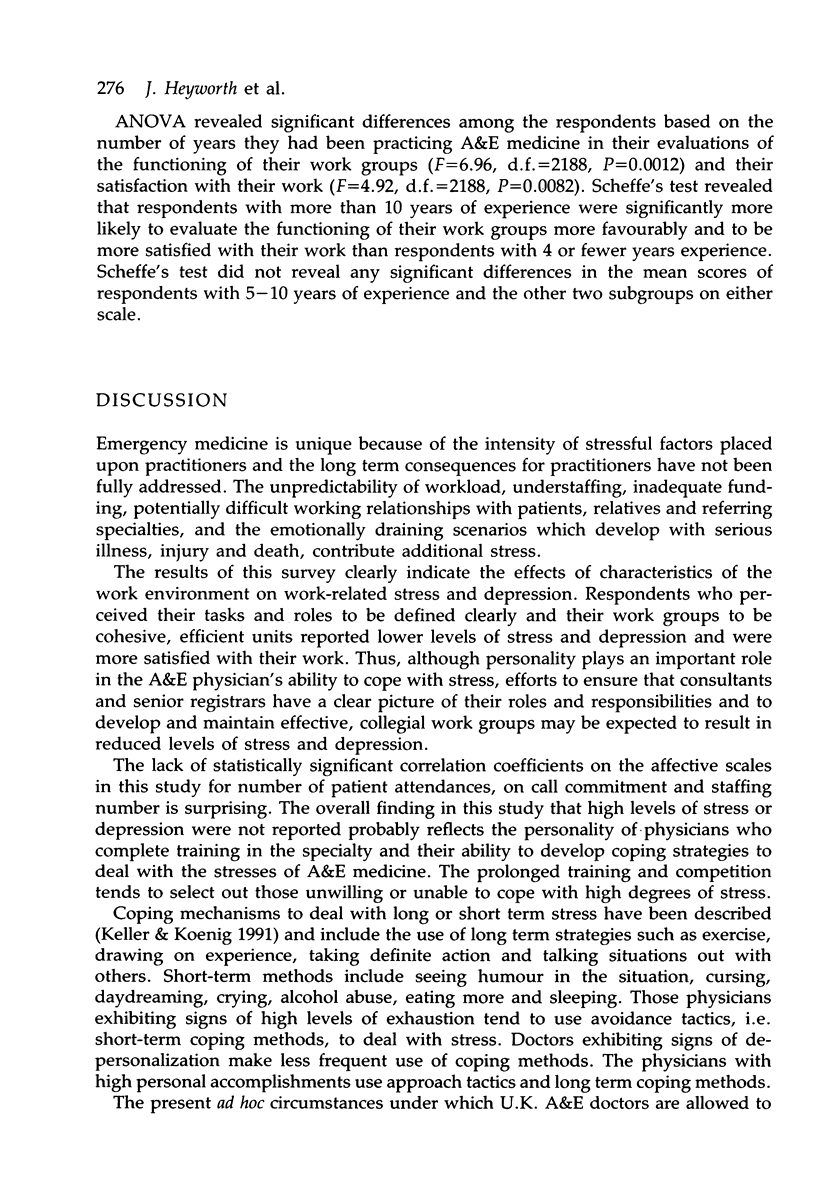
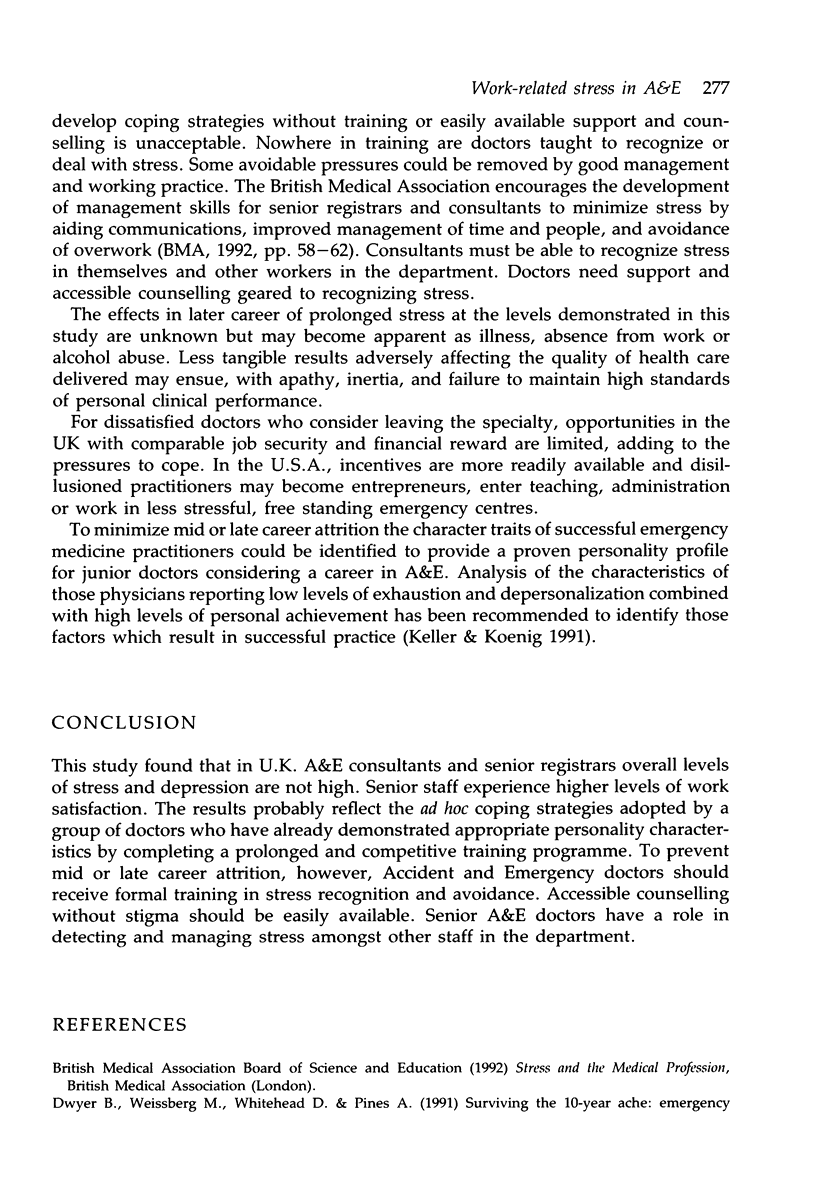
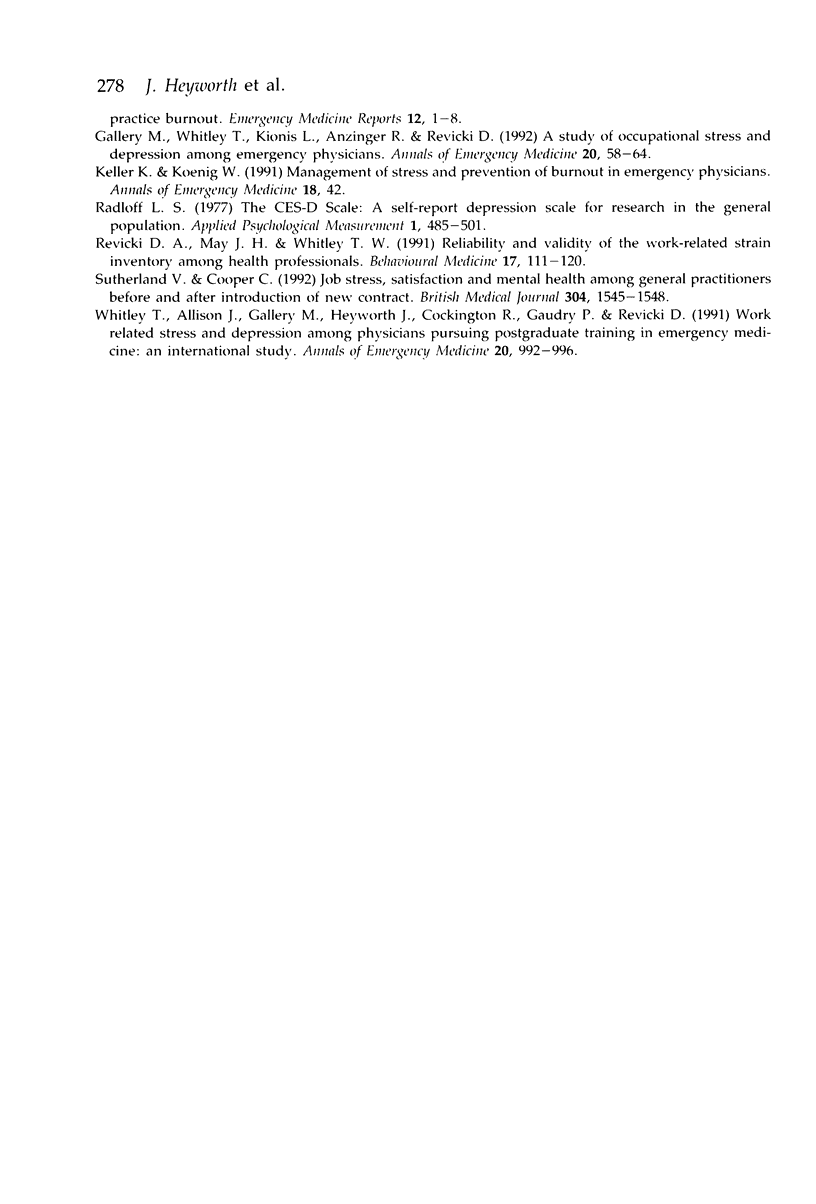
Selected References
These references are in PubMed. This may not be the complete list of references from this article.
- Gallery M. E., Whitley T. W., Klonis L. K., Anzinger R. K., Revicki D. A. A study of occupational stress and depression among emergency physicians. Ann Emerg Med. 1992 Jan;21(1):58–64. doi: 10.1016/s0196-0644(05)82238-3. [DOI] [PubMed] [Google Scholar]
- Revicki D. A., May H. J., Whitley T. W. Reliability and validity of the Work-Related Strain Inventory among health professionals. Behav Med. 1991 Fall;17(3):111–120. doi: 10.1080/08964289.1991.9937554. [DOI] [PubMed] [Google Scholar]
- Sutherland V. J., Cooper C. L. Job stress, satisfaction, and mental health among general practitioners before and after introduction of new contract. BMJ. 1992 Jun 13;304(6841):1545–1548. doi: 10.1136/bmj.304.6841.1545. [DOI] [PMC free article] [PubMed] [Google Scholar]
- Whitley T. W., Allison E. J., Jr, Gallery M. E., Heyworth J., Cockington R. A., Gaudry P., Revicki D. A. Work-related stress and depression among physicians pursuing postgraduate training in emergency medicine: an international study. Ann Emerg Med. 1991 Sep;20(9):992–996. doi: 10.1016/s0196-0644(05)82978-6. [DOI] [PubMed] [Google Scholar]


